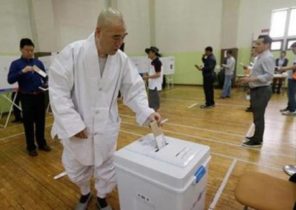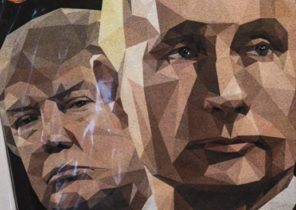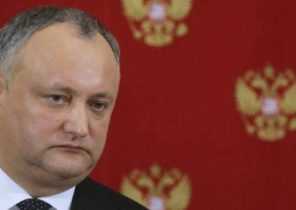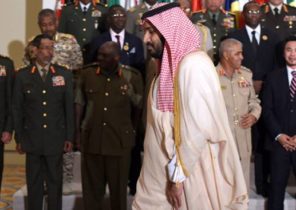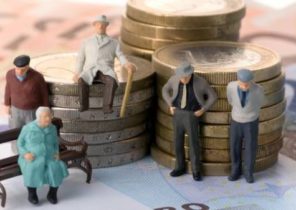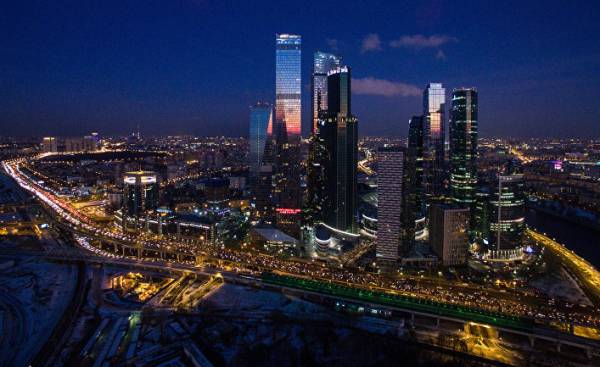
The crash of the Malaysian Boeing changed everything. 17 Jul 2014 the type missile “Buk” shot down a passenger plane in the skies over Donetsk, all 298 people on Board were killed. Then after the EU took a new course: Brussels, which has long been delayed, despite the fighting in the East of Ukraine, imposed economic sanctions against Russia.
The first sanctions came into force on 1 August 2014 and after were expanded. Among the sanctions — the arms embargo, and bans on the sale of Russian civilian technologies that can be used for military purposes, as well as technologies for exploration of new oil fields. In addition, under the sanctions were a number of Russian state concerns, including many of the state banks: they have blocked access to international capital markets.
The economic consequences of sanctions difficult to assess. They coincided with the turmoil in international energy markets. The price of oil — Russia’s most important export product since the end of 2014 has decreased significantly.
Russia sank to two years in recession. But from the beginning, the mood in Moscow has improved. The economy is once again showing a slight increase. The forecast for 2017 — an increase from 0.7 to 1.5%.
Expert on Russia Chris Weafer (Chris Weafer) explained in an interview why the country experienced a double shock — the fall in oil prices and sanctions — better than expected, and why Putin should finally diminish the power of the major state concerns.
Spiegel: Why is Russia managed to avoid collapse, which is predicted by many experts?
Chris Weafer: In 2014, indeed, it was widely believed that the recession may reach 10% in 2015 Russia will run out of money. This did not happen. The main reason a flexible exchange rate. The Russian Central Bank did not reduce artificially the course when were under pressure because of falling oil prices, unlike many other oil-producing countries, where today there is a much larger problem.
— What are the consequences of a weak ruble?
— Significantly reduced expensive imports, this benefits domestic companies. The Russian economy today is very competitive. Wages have fallen, taxes are low. Russia for some manufacturers today is more profitable than China. However, the state budget has remained stable, because the price of oil in dollars, although decreased, but the dollar was higher against the ruble. Thus the government may continue to provide pensions and public expenditure
— What is the situation with the Russian Finance?
— They are in very good condition. The national debt is still significantly lower than most Western countries. External debt is now well below 20% of GDP. The reserves of the Central Bank again increased to 350-400 billion dollars. A massive outflow of capital stopped.
— What is the reason?
— Putin in the last 15 years maintained a cautious stance of the Ministry of Finance regarding the foreign debt. The President believes that having too large external debt means to undermine national security. In relation to public expenditure the Kremlin during the crisis were disciplined, although the Parliament and wanted to get money to give impetus to growth. Unemployment was not a major problem — most of the jobs lost occurred in the migrant workers from Central Asian countries.
— Real incomes fell for almost 30 consecutive months. This leads to resentment?
— The promise of the Russian media in recent years were as follows: Russia — the goal of an economic attack on the West. People in the problems of blame, rather, the US or the EU, not the Kremlin. Government support remains at a high level.
— The growth continues?
— It is unlikely that the economy will be much stronger to grow. In 2017-2018 it will be a maximum of 1.5%, in 2019 and 2020, probably of 2.0-2.5%. More with the current economic structure, Russia can not achieve.
— What do You mean?
The government is committed to growth in the amount of four percent. To achieve this, Russia needs a continuous inflow of foreign direct investment. For this you need to convince investors that the government “this time” is really determined to improve the conditions for investment and business climate.
— What hinders the development of the Russian economy?
Now noticeable the missing diversification. Russia was very much dependent on oil prices. In addition, the country depends heavily on foreign capital. However, abroad, invested 750 billion dollars of Russian money. Russian investors too little trust in their own country and its economic future. The segment of small and medium business in the amount of 20% is too small, the segment is dominated by state corporations in the amount of 65%. This means that the innovative part of the economy is extremely small. And it should be exactly the opposite.
— Russia since the inauguration of Putin in 2000, discusses the fundamental structural reforms.
— I think this time the need for real change realized more senior officials than in the past. Without them, the economy will stagnate, there may be public reaction and political consequences. It became clear that high oil prices will not lead to success. Even in 2013, when the price of oil at $ 110 USD, the economic growth was only 1.3%.
— Former Finance Minister Alexei Kudrin informed the President about the project of reforms “Strategy 2035”. Whether this will lead to a breakthrough?
— I have 19 years in Russia. I had a strong impression that the country and the government only then begin to take the correct action when there is no other choice or the consequences of inaction are even worse. I think Putin has now reached this point.
— How?
— He wants to go down in history as the man who will leave the country in a much better state than when he came to power. Today the position of Russia in the world much stronger she is once again involved in world politics. But the economy — although it is in better condition than in the chaotic 90s, however, remains weak. According to polls, the discontent of the population grows. If Putin now does not focus on the economy, the next presidential term he will lose the support of the population.
China has benefited from the crisis between Russia and the West?
Since 2014, Russia has tried to open up to China. The policy promoted the turn towards Asia to replace the West as a key partner. China has not responded as hoped in Russia. In 2014, the head of the state Bank Sberbank after a trip to Beijing said: “We were standing in a long queue of people who wanted money, and nobody called ahead.”
Chris Weafer is one of the most authoritative experts of the Russian economy. He has been working in Russia for more than 19 years. Weafer was the chief strategist of Sberbank, Alfa-Bank and financial group “URALSIB”. Since 2013 he works in Moscow as an independent consultant.
